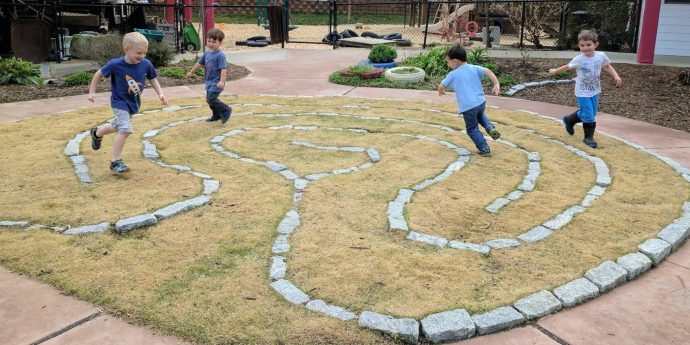
The need to return the kids back to Nature’s classroom; how priceless teachings nature can impart.
Even in Pakistan’s most esteemed educational establishments, one frequently discovers settings that irreversibly dull the senses of an individual. Focused on constructing concrete campuses, many don’t have spaces for recreational activities. If such sections are present, they are frequently used as extra classrooms or as a location for an excessively well-kept grass. In order to make room for security measures, trees are brutally cut down, and artificial turf predominates in outdoor areas which takes students and kids far from nature.
With the shades drawn all the way down, classrooms are completely dark and occasionally lack windows, preventing any natural light from entering. There aren’t many outside activities available, and the teacher-led activities boring the hell out of the youngsters.
Have we forgotten the priceless lessons we discovered while surrounded by nature? We refine our motor skills and resilience in nature. Nature shows us that life’s journey includes knocks and bruises and that while the flower will perfectly blossom, it will eventually wilt.
Children ask the most amazing questions when they are in their natural environment, capturing their curiosity and making them actively seek out answers. Liberal courses are viewed as unnecessary since they do not lead to lucrative employment, and Pakistani education strictly follows its conventional and conservative roles. The nation is completely lacking in environmental literacy.
Our contact with nature develops self-awareness, strengthens ties among the community, and instills a deep respect for the natural environment. Such encounters enhance our lives in a variety of ways, providing both psychological and physical benefits.
Not only are we dehumanised in this world, but we are also entirely disenchanted and cut off from our cosmic universe, just to turn into stoics, emotionless, or “rational,” to use the language of capitalists. Strangely devoid of empathy for other people, making compassion for the natural world and other creatures appear like a far-off concept.
Staying away from nature, makes it impossible for individuals to understand their own context and reality. People must be able to perceive, sense, and hear the wide, real world surrounding them otherwise, it prevents them from realizing that reality and their circumstances are changeable. Cross-curricular connections “naturally” arise in real life. It is the moment when kids discover that everything is truly connected, when they are close to nature where they generate creative concepts. It is impossible to debate renewable energy without addressing the environment, community impacts, politics, and economics.
In this regard, how can we free them from the constraints of conservative education? Our educational system is in dire need of a total makeover. The best method is to take kids outside of the classroom and into the surrounding environment. Environmental Education (EE) is based on progressive educational thought and goes beyond simple awareness. Its interdisciplinary approach incorporates social studies, history, language, art, and culture in addition to math, physics, engineering, and technology. It is a comprehensive strategy that encourages students to interact with a variety of views and disciplines for a whole learning experience, leading to a deeper knowledge of our interdependence with the natural world. It also increases student productivity at the same time. An increasing amount of studies is showing that students’ grades, learning, and mental health improve when they spend time in nature and the outdoors. Experiments conducted at the University of Michigan, Frontiers in Psychology, the International Journal of Environmental Research and Public Health, and other journals have shown that spending time in natural settings enhances attention spans and cognitive function, which in turn improves learning outcomes.
Children who have access to and experience outdoor learning environments and green spaces tend to do better academically, as evidenced by higher scores on standardised examinations. Because exposure to green spaces and natural habitats improves cognitive function and restores attention, it has been found to positively correlate with improved academic achievement in pupils. This increases focus and productivity. Programmes for outdoor education have the potential to improve pupils’ critical thinking, language, creativity, and problem-solving skills. An experience’s physical surroundings and settings are essential components. Hence the various advantages of incorporating nature and outdoor experiences into learning and daily life highlights the significance of having access to green areas for both academic performance and general well-being.

Content writer, educationist, teacher, researcher, social media manager, and a SEO manager from lahore. She has been working as a freelance academic and non-academic writer for more than 10 years now. She has a passion to learn new things and has a knack for writing and she combines both things to produce write ups she pours her heart out in.

